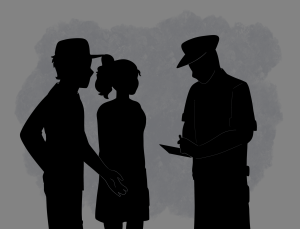Weinstein’s conviction is not the end
March 5, 2020
On Feb. 24, 2020, Harvey Weinstein became a convicted rapist in what is undoubtedly an important milestone for the #MeToo movement. Weinstein was convicted of a criminal sex act and rape, but acquitted on his most serious charges of predatory sexual assault. It is likely that he will spend between five and 29 years in prison, as opposed to the life sentence that would have accompanied the more severe charges. But as survivors celebrate, we need to remember that this is only one battle in a much more expansive fight. Individual victories are significant, but there also needs to be substantial institutional change, and if we stop now we may miss a vital opportunity.
The legal system in the U.S. is geared against victims of sexual assault and always has been. Non-Disclosure Agreements (NDAs), in particular, have been used to suppress the voices of victims in high profile cases by making it illegal for them to speak out. Even if survivors have the option to step forward, fears of retaliation and abuse deter countless women from going to court against their attackers.
Christine Blasey Ford, who testified against Supreme Court judge Brett Kavanaugh last year, faced public harassment and death threats that forced her to pay for private security. And there is the problematic police handling of less high profile sexual assault allegations. According to ProPublica, the police often clear rape cases without making an arrest, leaving rapists on the street and victims disincentivized from asking for help. Marital rape was made illegal in all 50 states in only 1993 and is still prosecuted more leniently in several states.
But Weinstein’s conviction has opened at least one avenue of progress by virtue of the circumstances surrounding the allegations. In two of the cases brought against Weinstein, the victim had a continued, often intimate relationship with him after the fact. Cases in which the victim remains “friendly” with their attacker are almost always dismissed by courts because they are difficult to prove, and because of cultural misunderstandings surrounding consent. The fact that Weinstein was successfully convicted shows some progress in the legal definitions of what constitutes rape, and the rights of victims to rescind consent. There is reason to hope that this precedent will open doors for other cases to be successfully prosecuted.
Rape is the worst thing that a human being can do to another, but it is dismissed consistently by institutions who don’t want to acknowledge what the #MeToo movement has brought to light. We should celebrate Weinstein’s conviction as a significant step forward, but not grow complacent. This is an opportunity to push the conversation forward. Hollywood, the government, businesses and educational institutions are full of alleged rapists who have yet to face consequences for their actions.
So, what does institutional change look like? First and foremost, we need to start protecting and believing victims. Rape is blamed on the victim’s outfits, their level of intoxication and their relationship with their attacker. But there is only one actual cause of rape: rapists. Nobody, whether they are a world famous Hollywood director, or a college student with a shaky understanding of consent, should be spared from the consequences of their actions; their reputations are not more important than others’ safety. Weinstein’s case proves that progress in the #MeToo movement can be made when victims can find a platform and a jury is willing to believe them. Now it is time to apply that formula and put the rest of the country’s predators behind bars.






